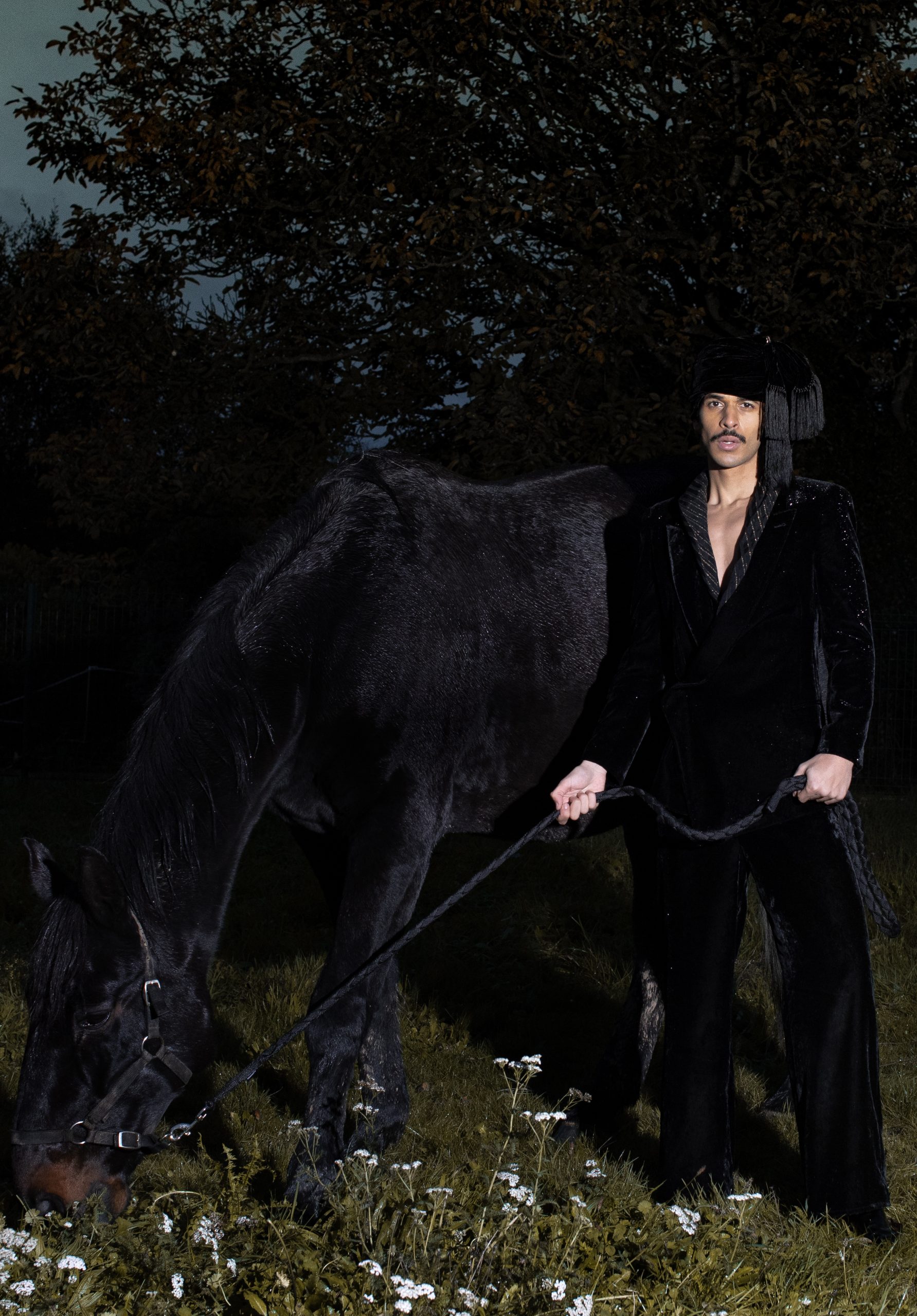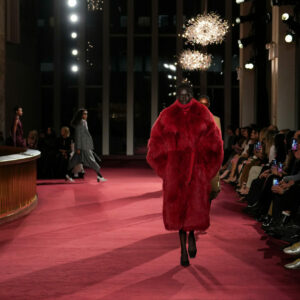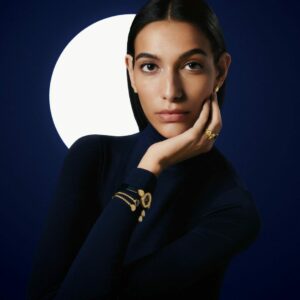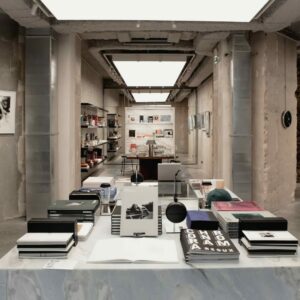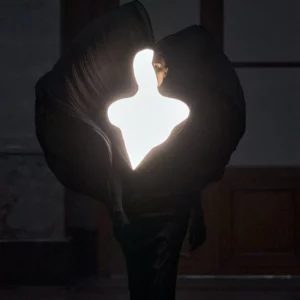In a sea of multi-hyphenates, few are able to strike the right balance between their creative pursuits. Tunisian model-turned-musician and aspiring actor Ali Latif (Instagram), however, is determined to do it all, fighting tooth and nail for his moment in the limelight. From living on the streets of Paris and getting by on make-rent gigs, to shooting campaigns for Versace and producing his own music, Ali Latif is driven by an unwavering perseverance as he shoots for the stars and grinds out success on his own terms.
Born in Tunisia, Latif moved to the South of France with his family when he was seven, navigating a tough childhood split between two cultures; held back by seemingly unobtainable dreams while battling disillusionment, alienation and discrimination all his life. However, he never lost faith and hung on to the hope that his big break would soon come. This would become his life’s mantra.

“Dream. Never stop dreaming. Keep faith. You never know what life is going to bring to you. I’m the perfect example of this. I was homeless. I was 18 years old. I was living on the streets in Paris, but nevertheless, every day I was thinking to myself ‘Okay, something’s going to happen’ – this is why I’m here today,” says Latif.
Ali Latif had a lot of dreams, but becoming a model was never one of them. When he left his job as a cashier on the French Riviera and ventured out to wrestle the cosmopolitan jungle of Paris, he was daydreaming about a career in music or cinema. It was while working in a bakery in Paris that Latif was discovered – by Jeffrey Kolsrud, the owner of Q Model Management – as Kolsrud purchased a croissant on a morning out in the French capital. “I came to Paris a few years ago to change my life,” says Latif, “I wanted to become an actor and do music, that was my intention when I arrived here. But then lots of new things came into my life. I was not supposed to be a model but it came to me. I was scouted in a bakery and I thought ‘Okay, this is going to open a lot of doors.’”

Wading through euro-centric standards and blatant discrimination, Latif still managed to rise through the ranks, modelling for Versace, Coach and H&M, and shooting for prestigious publications. His face has graced the pages of Vogue Spain, Fantastic Man, and Balmain’s line of hair products. He has also walked for French labels AMI and Haider Ackermann. But the life of a model is not all glamour and glitz. For Latif, he always felt ‘othered’ and alienated by the fashion establishment. The modelling space was not welcoming of outsiders, but Latif pushed on and achieved his goals by way of hard graft and a steadfast belief that anything is possible. “A few years ago, I was one of the only Arabs in the industry. I struggled a lot. People asked me to change my name and a lot of people told me that I will never work because I’m an Arab.” Even after snagging campaigns with some of the world’s most prestigious fashion houses, Latif still had difficulty navigating the industry in Europe. “Before the Versace or Coach campaign, though they came early in my career, it was a nightmare for me. I was not accepted anywhere. Even after those campaigns, I have always felt the rejection. I don’t come from a rich family, my father is a builder and my mum is a cleaner,” he says.

Latif hopes his story will inspire the younger generations in Tunisia to shoot for the stars. That nothing is out of reach and that if you believe ardently in your dreams, everything will align for you. The key, for him, is perseverance and not wallowing in self-pity and resentment. “I don’t want to think that if I don’t get something, it’s because I’m an Arab, because if you go down this path, it’s going to be very hard for you. You will give up very quickly. You have to discipline yourself. You have to think ‘I’m going to make it even if I’m from a marginalised group’. Fight for your dreams because if you don’t, nobody is going to do it for you.”
With his popularity as a model both in France and in Tunisia, Latif was able to naturally transition into the musical realm, finding a place for himself in the Franco-Tunisian rap scene. This pivot isn’t his first flirtation with music, though. His penchant for music was born long before Latif ever posed in front of a camera. “I’ve always been into music; since I was 10 years old music has been a kind of therapy. Music saved me when I was younger,” he says. Today, he continues using music as an outlet, a coping mechanism, a platform to give voice to his struggles.

He tells his own personal story as an Arab swimming in the diaspora. His work speaks to the struggles and dreams of a generation of Middle Eastern youth. “My music talks about the issue of being an Arab in France. It talks about the struggle of surviving every day when you’re a poor kid, when you have no money, when you come from nowhere.” His music sends a message to those scared to take the leap and chase their dreams. “It’s for the people who are talented, but who lack courage to leave their hometown, to go somewhere else. Where I grew up in the South of France, no one ever left. Everyone is born there and they stay there. They never leave because they think that there is no life outside of this circle. I’m trying to give a message of hope. I want to say to other kids that everything is possible.”
Growing up, Latif listened to a fusion of French and American rap from the 90s, which later morphed into a passion for popular Tunisian and Egyptian music, as he crossed borders and grasped for his roots in the diaspora. “I am a bit lost. Often in Paris they say you are Tunisian, but when I am in Tunisia they say you are French. What a strange world we live in.”

The question of identity is present in all of his music. Embracing his Tunisian roots and integrating them into contemporary hip-hop, Latif created a unique sound that replicates the music he grew up with. His music is at the intersection of the multiplicity of cultures that moulded Latif into the person he is today.
In the midst of COVID-19, Ali Latif hibernated at a Parisian studio and kicked off the musical chapter of his life, releasing a string of feel-good rap singles. His Franco-Tunisian fusion is an ode to his roots, a celebration of his success and a message of empowerment. Although he’s taken a small hiatus after his last EP, ‘520’, Latif tells us he’s brewing up a handful of new tracks and plans to release them in the upcoming months. Watch this space.
Ali Latif, the ultimate multi-hyphenate.

Discover more of our arts and culture coverage here.
Production Credits:
Photography: Ismael Nebchi
Styling: Tahi Guy
Agent: Saif Mahdi
Makeup Artist: Benoit Claverie
Hair Stylist: Constance Haond
Production: Fashion and Art Moroccan Association, Media Up Production
Location: Karima Peyronie
